The Evolution and Critical Role of High-Performance Electrical Insulation
In the intricate landscape of electrical engineering and power distribution, the integrity and longevity of conductive components hinge significantly on the efficacy of their insulation. As industrial demands escalate and infrastructure ages, the need for advanced insulating materials becomes paramount. Among the leading solutions, epr self amalgamating tape stands out as a transformative innovation, revolutionizing how high-voltage connections are sealed, insulated, and protected. This specialized tape, meticulously engineered from Ethylene Propylene Rubber (EPR), possesses a unique property: when stretched and wrapped, its layers molecularly fuse into a homogeneous, void-free, and stable insulating barrier, eradicating air voids that could otherwise lead to partial discharges and insulation breakdown. This inherent self-amalgamating characteristic, coupled with its exceptional electrical and physical properties, makes it indispensable for applications demanding robust moisture sealing, superior dielectric strength, and long-term environmental resilience. The global market for electrical insulation materials, including advanced tape solutions, is experiencing substantial growth, driven by investments in smart grid technologies, renewable energy infrastructure, and the continuous expansion of industrial and urban power networks. Projections indicate a sustained CAGR of approximately 5-7% for this sector through 2028, reflecting the increasing demand for reliable and durable insulation solutions that can withstand harsh operating conditions and elevate system reliability. For professionals in power utilities, telecommunications, industrial maintenance, and specialized manufacturing, understanding the nuanced capabilities of epr self amalgamating tape is crucial for ensuring operational continuity, enhancing safety protocols, and optimizing system performance in an increasingly electrified world. Our flagship product, the J30 High-voltage EPR Rubber Tape, embodies these advancements, offering a superior solution tailored for critical insulation and sealing applications across diverse high-voltage environments. Its formulation is specifically designed to meet stringent industry standards, providing unparalleled protection against moisture ingress, ozone degradation, and UV radiation, ensuring the integrity of electrical connections under extreme thermal and environmental stresses. The self-fusing nature of J30 means once applied, it forms a cohesive rubber mass, effectively eliminating the risk of layer separation or unraveling, which is a common failure point for conventional tapes. This singular attribute significantly reduces maintenance overheads and extends the service life of insulated components, making it a cost-effective choice for long-term infrastructure investments. The inherent elasticity and conformability of the tape allow it to tightly adhere to irregular shapes and contours, making it ideal for insulating bus bars, cable splices, and complex electrical junctions where a uniform, impenetrable seal is required. This adaptability ensures that even the most challenging geometries can be thoroughly protected, preventing potential hotspots and electrical breakdowns. Furthermore, the material composition of J30 offers excellent thermal dissipation properties, which is vital for preventing heat buildup in high-current applications, thereby preserving the lifespan of conductors and connected equipment. The J30 tape is not merely an insulating material; it is a critical component in ensuring the reliability and safety of modern electrical systems, providing a robust, long-lasting barrier against the elements and operational stresses.
Unrivaled Technical Advantages and Performance Metrics of EPR Tape
The selection of an appropriate electrical insulation material is a decision of critical importance in engineering design, directly impacting system reliability, safety, and operational longevity. EPR self amalgamating tape distinguishes itself from conventional insulation solutions, such as PVC tapes or standard rubber tapes, through a spectrum of superior technical attributes that are particularly vital in demanding high-voltage environments. Foremost among these is its exceptional dielectric strength, which refers to the maximum electric field that the insulating material can withstand without undergoing electrical breakdown. For J30 High-voltage EPR Rubber Tape, this value is consistently high, often exceeding 20 kV/mm, providing a robust barrier against electrical arcing and short circuits even under significant electrical stress. This high dielectric capability ensures that the tape maintains its insulating properties across a broad range of operating voltages, making it suitable for applications from low to ultra-high voltage systems. Another paramount advantage is its resistance to ozone and ultraviolet (UV) radiation, environmental factors that are notorious for degrading many traditional rubber and plastic materials over time. Ozone, a powerful oxidizing agent present in urban and industrial atmospheres, can cause cracking and embrittlement in susceptible polymers, leading to premature insulation failure. Similarly, prolonged exposure to UV radiation from sunlight can break down molecular bonds, reducing mechanical strength and dielectric performance. EPR, by its inherent chemical structure, exhibits superior resistance to these elements, ensuring that the tape retains its flexibility and insulating integrity even when exposed to harsh outdoor conditions. Furthermore, the moisture-sealing capability of epr self amalgamating tape is unparalleled. When applied correctly with sufficient tension, the layers of the tape fuse to form a solid, hermetically sealed mass that completely repels water ingress. This is crucial for underground cable splices, outdoor terminations, and any application where moisture can compromise electrical connections, leading to corrosion, tracking, or flashover. The complete void-filling characteristic of the tape, achieved through its self-amalgamating property, eliminates air pockets that could otherwise trap moisture or serve as pathways for electrical tracking, providing a homogeneous insulating mass around irregular shapes and sharp edges. This prevents partial discharges, a common cause of long-term insulation degradation. The thermal stability of EPR is also a significant advantage, allowing the tape to perform reliably across a wide operating temperature range, typically from -40°C to +90°C, with emergency overload ratings often extending to +130°C. This broad thermal tolerance ensures consistent performance in both extremely cold and hot environments, reducing the risk of insulation embrittlement at low temperatures or softening and flow at high temperatures. In contrast, many PVC tapes become brittle in cold conditions and lose their adhesive properties or deform under heat. The elasticity and conformability of epr tape are additional technical merits. It can be stretched significantly (often 800-1000% elongation) without breaking, allowing it to tightly conform to complex geometries and irregular surfaces, ensuring a snug, uniform application that fills all voids. This high elongation, combined with its strong "memory," ensures that the tape maintains constant radial pressure over time, compensating for any thermal expansion or contraction of the underlying components. The material's inherent resistance to common chemicals, diluted acids, and alkalis further expands its applicability in industrial settings where exposure to such substances is possible. Collectively, these technical parameters — high dielectric strength, ozone/UV resistance, moisture sealing, void-filling, thermal stability, and exceptional conformability — position epr self amalgamating tape as a superior choice for critical electrical insulation, far exceeding the performance of traditional insulating materials in terms of reliability, safety, and longevity. The investment in such advanced materials directly translates into reduced maintenance costs, decreased downtime, and enhanced operational safety for any electrical system.
Deep Dive into J30 High-Voltage EPR Rubber Tape Specifications
Our J30 High-voltage EPR Rubber Tape represents the pinnacle of self-amalgamating tape technology, specifically engineered to meet the rigorous demands of high-voltage electrical insulation and moisture sealing. This product is meticulously designed for professional applications where uncompromising reliability and long-term performance are non-negotiable. The J30 tape is characterized by its superior electrical insulation properties, excellent moisture sealing capabilities, and remarkable conformability, making it an ideal choice for insulating, protecting, and sealing splices and terminations of solid dielectric power cables up to 69kV. Its core composition leverages a highly stable Ethylene Propylene Rubber base, compounded with proprietary additives to enhance its self-amalgamating properties, resistance to ozone and UV, and thermal stability. The physical dimensions typically include a thickness of 0.76 mm (30 mil), widths ranging from 19 mm (0.75 in) to 50.8 mm (2.0 in), and standard lengths of 9.1 m (30 ft) to 15.2 m (50 ft), though custom dimensions are available to cater to specific project requirements. Key performance metrics for the J30 tape include an impressive dielectric strength, typically exceeding 28 kV/mm, which provides a significant safety margin against electrical breakdown even under severe voltage stress. This high insulation value ensures that the tape can reliably handle the electrical demands of medium and high-voltage systems. The volume resistivity, a measure of how strongly a material resists electric current flow through its bulk, is exceptionally high, often above 10^16 ohm-cm, indicating its excellent insulating capacity. Its thermal class allows for continuous operation at conductor temperatures up to 90°C and emergency overload temperatures up to 130°C, demonstrating its resilience in dynamic thermal environments common in power distribution networks. The elongation at break for J30 is typically between 800% and 1000%, illustrating its extreme flexibility and ability to stretch and conform perfectly to irregular shapes without fracturing, ensuring a uniform, void-free build-up. The tensile strength, while not as critical as dielectric strength for an insulating tape, is robust enough to allow for firm, tight wrapping, typically around 1.0 MPa. The self-amalgamating characteristic is profound; when stretched and wrapped, the layers fuse within minutes at room temperature, forming a monolithic, cohesive rubber mass that eliminates air and moisture pathways, and this amalgamation process continues to strengthen over time, ensuring a permanent seal. The tape also exhibits excellent resistance to water absorption, typically less than 0.1% after 24 hours, which is vital for maintaining its insulating properties in moist or submerged conditions. Its resistance to ozone, UV radiation, and tracking ensures long-term outdoor performance without degradation. These comprehensive specifications position J30 High-voltage EPR Rubber Tape as a premium solution for ensuring the longevity, safety, and operational efficiency of critical electrical infrastructure, providing engineers and technicians with a reliable tool for their most demanding insulation and sealing tasks.
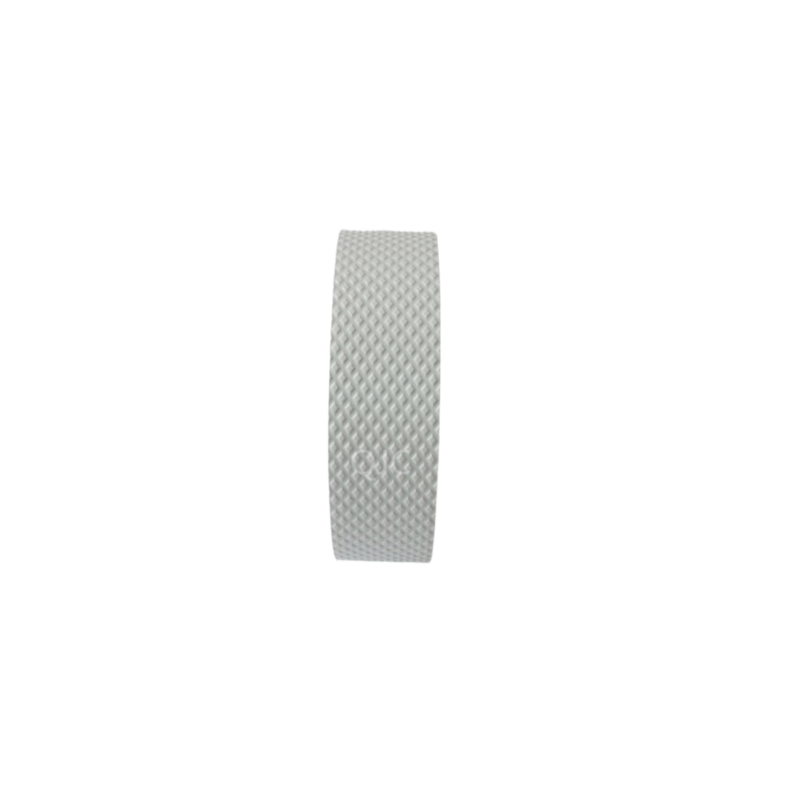
J30 High-Voltage EPR Rubber Tape: Key Technical Parameters
The Advanced Manufacturing Process of High-Quality EPR Self-Amalgamating Tape
The production of a high-performance epr self amalgamating tape like our J30 High-voltage EPR Rubber Tape is a sophisticated process that transcends simple mixing and cutting. It involves a precise blend of material science, chemical engineering, and meticulous quality control to ensure the final product delivers consistent, superior performance in critical applications. The manufacturing journey begins with the careful selection of raw materials, primarily high-grade Ethylene Propylene Rubber (EPR) polymers. This synthetic rubber is chosen for its excellent electrical properties, thermal stability, and inherent resistance to ozone and UV degradation. Alongside the base polymer, a precise combination of fillers (such as calcium carbonate or clay for mechanical properties and cost optimization), vulcanizing agents (like peroxides for cross-linking), tackifiers (to enhance self-amalgamation), antioxidants, and processing aids are carefully proportioned. The first critical stage is compounding and mixing. The raw EPR polymer, along with all the precisely weighed additives, is fed into a high-shear mixer, such as a Banbury mixer or a two-roll mill. During this stage, intense mechanical action and controlled heating ensure a homogeneous dispersion of all ingredients throughout the rubber matrix. This step is crucial for achieving uniform physical and electrical properties in the final tape. Improper mixing can lead to inconsistencies, affecting dielectric strength or self-amalgamation. Following compounding, the mixed rubber compound is typically processed through calendering or extrusion. Calendering involves passing the rubber compound through a series of heated rollers to form it into a continuous sheet of precise thickness. This method allows for excellent control over the gauge (thickness) and width of the tape. Alternatively, extrusion forces the compound through a die to create a continuous profile, which is then rolled into sheets. Both methods aim to produce a uniformly thick, smooth sheet of uncured epr tape. After forming, the continuous sheet undergoes a crucial vulcanization (curing) process. This involves heating the rubber sheet to a specific temperature for a defined period, initiating the chemical cross-linking of the polymer chains via the vulcanizing agents. This process transforms the soft, pliable uncured rubber into a resilient, elastic, and dimensionally stable material, giving it its final mechanical and electrical properties. However, a unique aspect for self-amalgamating tapes is that the vulcanization process is precisely controlled to achieve a state of partial cure. This partial cure allows the rubber to retain its "tackiness" and ability to fuse with itself when stretched, while still providing the necessary strength and elasticity. If the tape were fully cured, it would lose its self-amalgamating property. The cured (or partially cured) sheet is then typically cooled and wound onto large rolls. The next step is slitting, where these large rolls are precisely cut into narrower widths, creating the individual rolls of epr tape that are packaged for distribution. Precision slitting ensures consistent width and clean edges for optimal application. Throughout the entire manufacturing process, stringent quality control measures are implemented. This includes raw material inspection, in-process checks of compound viscosity and sheet thickness, and post-production testing of the finished tape. Key tests include measuring dielectric strength (ASTM D149), volume resistivity (ASTM D257), elongation at break and tensile strength (ASTM D412), self-amalgamation performance (ASTM D4388), water absorption (ASTM D570), and resistance to ozone (ASTM D1149) and UV. Adherence to international standards such as ISO 9001 for quality management systems, ASTM International standards, and IEC (International Electrotechnical Commission) standards like IEC 60454 for pressure-sensitive adhesive tapes for electrical purposes is paramount. This meticulous manufacturing process, from raw material selection to final testing, ensures that each roll of J30 High-voltage EPR Rubber Tape consistently delivers the high performance, reliability, and safety expected by industrial and utility clients.
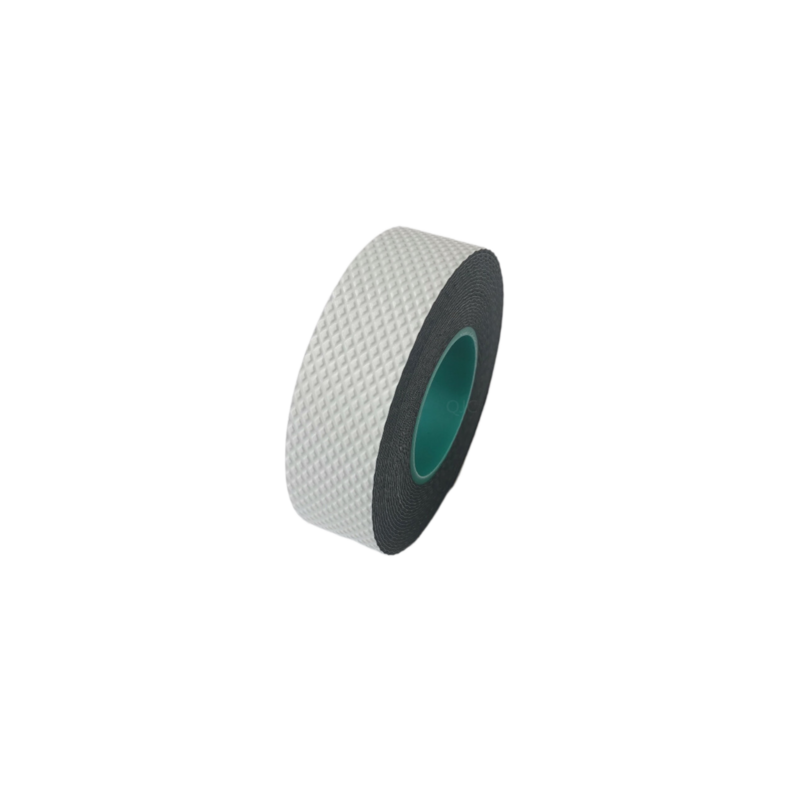
Diverse Application Scenarios and Industry Impact of EPR Tape
The versatility and superior performance characteristics of epr self amalgamating tape make it an indispensable material across a vast array of industries and critical applications, particularly where reliable electrical insulation, moisture sealing, and environmental protection are paramount. Its unique ability to fuse into a solid, homogeneous mass when wrapped ensures a void-free, waterproof, and electrically stable barrier, which is crucial for preventing insulation breakdown and prolonging the life of electrical assets. One of the primary and most significant applications for J30 High-voltage EPR Rubber Tape is in the splicing and termination of power cables, ranging from low voltage (600V) all the way up to high voltage (69kV) systems. In cable splicing, the tape is used to rebuild the insulation layers after joining conductors, ensuring that the repaired section matches or exceeds the original cable's dielectric strength and moisture resistance. Its conformability allows it to tightly adhere to irregular shapes created by connector blocks and cable geometries, eliminating air pockets that could otherwise lead to partial discharges or moisture ingress. For cable terminations, especially in outdoor or humid environments, epr tape provides a robust, weather-resistant seal around the termination point, protecting against rain, humidity, dust, and pollutants that could cause tracking or flashover. Beyond power cables, it plays a vital role in insulating bus bars, which are metallic strips or bars that conduct electricity within switchgear, panel boards, and power distribution systems. Applying epr tape to bus bar connections ensures insulation integrity, preventing accidental contact and reducing the risk of short circuits, particularly in confined spaces or areas susceptible to environmental contamination. In the telecommunications sector, epr self amalgamating tape is extensively used for moisture sealing coaxial cables, communication lines, and antenna connections. The outdoor nature of many communication infrastructure components exposes them to severe weather conditions, and the tape provides an impermeable barrier against water, ensuring signal integrity and preventing corrosion of connectors. The automotive industry utilizes epr tape for protecting wiring harnesses, battery connections, and sensor wiring, especially in areas exposed to engine heat, moisture, or vibrations. Its flexibility and resistance to automotive fluids make it ideal for these demanding environments. In marine applications, where equipment is constantly exposed to saltwater, humidity, and extreme temperatures, epr tape is crucial for sealing electrical connections on boats, ships, and offshore platforms, preventing corrosion and ensuring continuous operation. The mining industry, with its harsh, often wet, and abrasive environments, relies on the durability of epr tape for repairing and insulating heavy-duty cable jackets and splices, which are frequently damaged by machinery or rocks. Its ability to withstand impact and moisture makes it invaluable for maintaining power to critical mining equipment. Furthermore, in specialized industrial settings such as petrochemical plants, metallurgical facilities, and even renewable energy installations (solar and wind farms), epr tape is employed for its resistance to chemicals, its long service life, and its ability to provide reliable insulation in conditions characterized by high temperatures, corrosive atmospheres, or significant mechanical stress. The benefits derived from these applications are manifold: enhanced system reliability due to superior insulation and moisture protection, significantly reduced downtime from electrical failures, improved safety for personnel by minimizing electrical hazards, and considerable cost savings over the long term by extending the service life of expensive electrical assets and reducing maintenance frequency. The impact of high-quality epr tape like J30 extends beyond simple insulation; it is a fundamental enabler of robust, resilient, and high-performing electrical infrastructure across the globe.
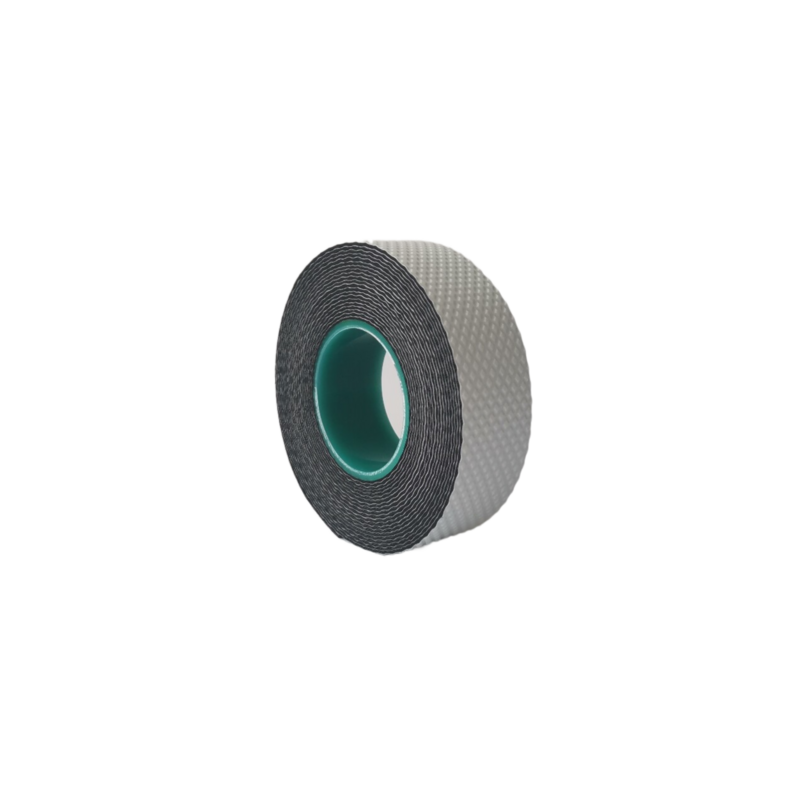
Ensuring Quality and Compliance: Industry Standards and Certifications
In the highly regulated and safety-critical domain of electrical insulation, adherence to stringent industry standards and obtaining reputable certifications are not merely optional, but absolutely essential. For a product like J30 High-voltage EPR Rubber Tape, designed for critical electrical applications, compliance ensures performance, reliability, and most importantly, safety. These standards provide a universal benchmark for material properties, testing methodologies, and application guidelines, offering assurance to engineers, procurement specialists, and end-users alike. Key international and national standards bodies play a pivotal role in defining the quality parameters for epr self amalgamating tape. The American Society for Testing and Materials (ASTM International) publishes numerous standards relevant to rubber and electrical insulating materials. For instance, ASTM D4388, "Standard Specification for Nonmetallic Semi-Conducting and Insulating Tapes for Electrical Shielding, Jointing, and Terminating," specifically addresses the requirements for self-amalgamating tapes, including their electrical and physical properties. Other ASTM standards, such as ASTM D149 for dielectric breakdown voltage, ASTM D257 for DC resistance or conductance of insulating materials, and ASTM D412 for tensile properties of vulcanized rubber and thermoplastics, are fundamental in evaluating the electrical integrity and mechanical robustness of the tape. Similarly, the International Electrotechnical Commission (IEC) is a leading global organization that prepares and publishes international standards for all electrical, electronic, and related technologies. IEC 60454, "Pressure-sensitive adhesive tapes for electrical purposes," provides general requirements and test methods applicable to electrical tapes, including self-amalgamating types. Adherence to these IEC standards ensures that epr tape products meet internationally recognized benchmarks for quality and performance, facilitating their adoption in global markets. In North America, the Institute of Electrical and Electronics Engineers (IEEE) also issues crucial standards, particularly for power cable applications. While not directly specifying tape characteristics, IEEE standards for cable splices and terminations often imply the use of materials that meet certain performance criteria, which epr self amalgamating tape excels at. Beyond product-specific standards, adherence to a robust Quality Management System (QMS) is critical. ISO 9001 certification, an internationally recognized standard for quality management, demonstrates a manufacturer's commitment to consistent quality, continuous improvement, and customer satisfaction throughout its production processes. For manufacturers of epr tape, ISO 9001 certification signifies that their operations, from raw material sourcing and manufacturing to testing and delivery, follow documented procedures designed to ensure product conformity and reliability. Regular internal and external audits verify ongoing compliance with these standards. Furthermore, reputable manufacturers often provide test reports from independent third-party laboratories, validating the product's performance against stated specifications and industry standards. These reports offer an objective assessment of the tape's dielectric strength, amalgamation rate, temperature resistance, and other critical parameters, building immense trust with technical buyers and specifiers. The inclusion of clear labeling and traceability information on product packaging, indicating batch numbers, manufacturing dates, and expiration dates, further enhances trustworthiness and facilitates quality assurance and recall procedures if ever necessary. For buyers, looking for products from ISO-certified manufacturers with readily available test data and compliance declarations is a fundamental step in de-risking procurement and ensuring the long-term reliability of their electrical systems. Our commitment to these stringent standards ensures that J30 High-voltage EPR Rubber Tape not only meets but often exceeds the performance expectations for critical electrical insulation, reflecting our dedication to expertise, authoritativeness, and trustworthiness in the B2B market.
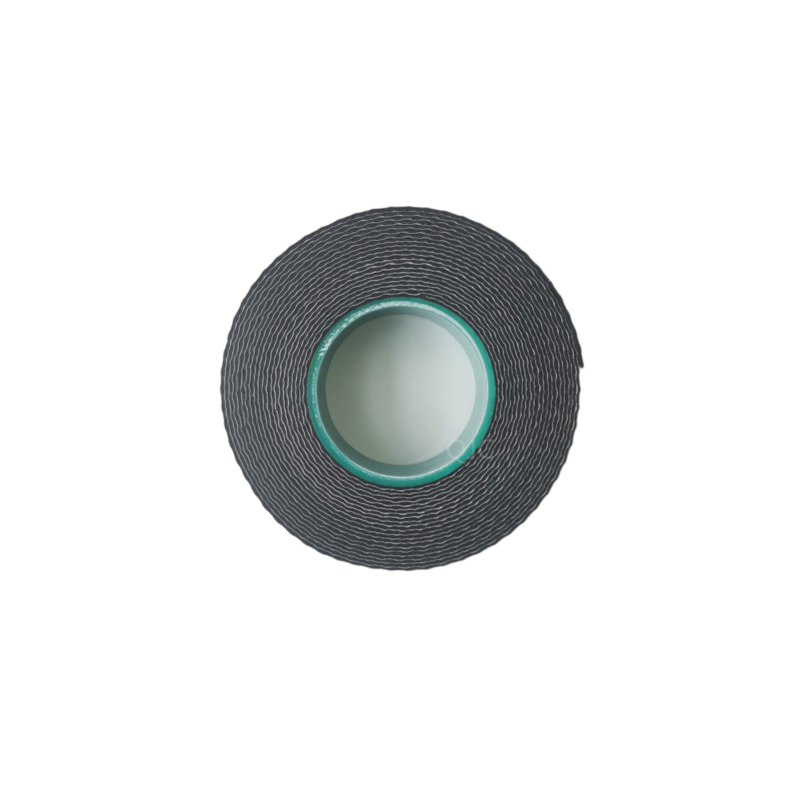
Strategic Manufacturer Comparison and Tailored Custom Solutions
When sourcing critical electrical insulation materials like epr self amalgamating tape, B2B decision-makers must navigate a landscape of various manufacturers, each offering products with potentially varying levels of quality, support, and customization capabilities. A thorough comparative assessment is crucial to ensure optimal product selection that aligns with specific project requirements, regulatory compliance, and long-term cost-effectiveness. Key criteria for evaluating manufacturers extend beyond mere product specifications to encompass their overall commitment to quality, innovation, customer service, and supply chain reliability. One primary differentiator among manufacturers lies in their Research & Development (R&D) capabilities and commitment to innovation. Leading manufacturers continuously invest in R&D to enhance the performance characteristics of their epr tape, such as improving dielectric strength, extending temperature range, enhancing ozone/UV resistance, or developing faster amalgamation times. This proactive approach ensures that their products remain at the forefront of technological advancements and meet evolving industry demands, particularly with the advent of smart grids and higher voltage systems. Another critical aspect is manufacturing consistency and quality control. As detailed in the previous section, the precise compounding, calendering, and curing processes are vital for creating a reliable epr self amalgamating tape. Manufacturers with robust ISO 9001 certified quality management systems and a track record of producing consistent, defect-free batches are highly preferred. This includes rigorous in-house testing and, ideally, third-party certification of product performance against international standards like ASTM and IEC. The depth of technical support and customer service offered by a manufacturer is also a significant factor. This includes readily available technical datasheets, application guides, responsive engineering support for complex insulation challenges, and efficient troubleshooting assistance. For B2B clients, timely and knowledgeable support can dramatically impact project timelines and success rates. Furthermore, manufacturers' flexibility in offering custom solutions is a substantial advantage. While standard dimensions and formulations of epr tape cater to most general applications, specific projects or unique environmental conditions may necessitate tailored specifications. This could include variations in tape thickness (e.g., thinner for intricate wraps, thicker for higher voltage builds), custom widths or lengths to minimize waste and optimize application time, specific color options for phase identification or safety coding, or even custom formulations designed for extreme temperature resistance, enhanced chemical resistance, or non-tracking properties for specific outdoor applications. For instance, a client might require a J30 variant with a specific non-tacky liner material for easier unwinding in high-humidity environments, or a formulation optimized for performance in sub-zero Arctic conditions. Our commitment to providing custom solutions stems from a deep understanding that one size does not fit all in complex electrical engineering projects. We engage closely with clients through a consultative approach, leveraging our extensive R&D and manufacturing expertise to develop bespoke epr self amalgamating tape solutions that precisely meet their unique technical and operational needs. This collaborative process ensures that the tailored product not only delivers the required performance but also integrates seamlessly into their existing workflows and infrastructure. By offering such customized options alongside our standard high-quality J30 High-voltage EPR Rubber Tape, we empower our clients to achieve optimal insulation outcomes, reduce installation complexities, and enhance the overall reliability of their electrical systems, setting us apart as a strategic partner rather than just a supplier. This flexibility, combined with our unwavering commitment to quality and technical excellence, positions us as a preferred choice for discerning B2B purchasers in the electrical insulation market.
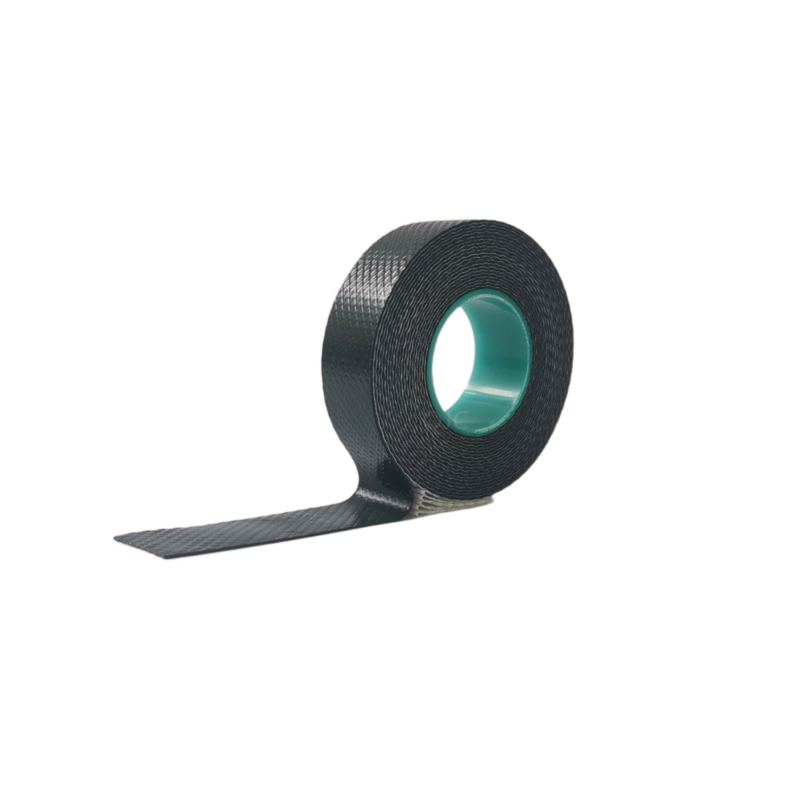
Building Trust: FAQs, Delivery, Warranty, and Expert Support
Establishing and maintaining trust with B2B clients goes beyond simply delivering a high-quality product; it encompasses transparent communication, reliable support, and clear commitments regarding service and product longevity. For a critical component like epr self amalgamating tape, where performance directly impacts system reliability and safety, these aspects are paramount. Our commitment to customer satisfaction for our J30 High-voltage EPR Rubber Tape extends through every phase, from initial inquiry to post-purchase support. We believe in proactive communication and comprehensive assistance to ensure our clients derive maximum value and confidence from our products.
Frequently Asked Questions (FAQs) about EPR Self-Amalgamating Tape:
-
Q: What is the primary difference between J30 EPR Rubber Tape and standard PVC electrical tape?
A: The fundamental difference lies in their properties and intended use. J30 EPR self amalgamating tape is a non-adhesive, self-fusing rubber tape that creates a permanent, homogeneous, void-free, and waterproof insulating barrier when wrapped. It offers superior dielectric strength, moisture sealing, and thermal stability. PVC tape, on the other hand, relies on a pressure-sensitive adhesive and provides mechanical protection and some electrical insulation, but it is not designed for hermetic sealing or high-voltage primary insulation, especially against moisture ingress. PVC tape can also harden and lose adhesion in extreme temperatures, whereas EPR maintains flexibility and insulation integrity. -
Q: How does the self-amalgamating property work, and how long does it take?
A: When EPR self amalgamating tape is stretched and wrapped onto itself, the molecular chains of the EPR rubber bond to each other, forming a solid, cohesive rubber mass without the need for adhesive, heat, or external pressure. This process begins almost immediately upon application and strengthens over time, achieving full amalgamation typically within 24-48 hours at room temperature, creating a permanent, waterproof, and electrically stable seal. The precise control over the partial cure during manufacturing allows for this unique self-fusing characteristic. -
Q: What is the recommended application tension for J30 tape?
A: For optimal performance and complete amalgamation, J30 EPR tape should be applied with tension sufficient to reduce its width by approximately one-third to one-half (stretch it to about 2-3 times its original length). This stretching is crucial for initiating the amalgamation process and ensuring a tight, void-free wrap, which maximizes its dielectric and moisture-sealing capabilities. -
Q: Is J30 High-voltage EPR Rubber Tape resistant to UV and ozone?
A: Yes, J30 is formulated with additives that provide excellent resistance to both UV radiation and ozone. This makes it highly suitable for outdoor applications where prolonged exposure to sunlight and atmospheric ozone can degrade lesser quality materials. Its robust environmental resistance ensures long-term integrity and performance in challenging conditions. -
Q: What is the typical lead time for large orders of J30 tape?
A: Our standard lead time for J30 High-voltage EPR Rubber Tape typically ranges from 2 to 4 weeks, depending on order volume and current production schedules. For urgent requirements or very large custom orders, we encourage clients to contact our sales team directly to discuss expedited options and tailored production plans. We maintain robust inventory levels and efficient logistics to minimize delivery delays.
Delivery and Logistics:
We understand that timely delivery is paramount for B2B operations. Our logistics department is equipped to handle orders of all sizes, from small-batch prototyping to large-scale industrial quantities. We partner with reliable global shipping carriers to ensure secure and efficient transportation of J30 High-voltage EPR Rubber Tape, offering various shipping options to meet diverse client needs and deadlines. Detailed tracking information and proactive communication regarding shipment status are provided to keep our clients informed every step of the way. We also offer flexible packaging solutions to protect the product during transit and facilitate easy handling upon arrival. Our commitment to streamlined delivery processes aims to integrate seamlessly with your project timelines and supply chain management.
Warranty and Quality Assurance:
Every roll of J30 High-voltage EPR Rubber Tape is manufactured under stringent ISO 9001 certified quality management systems, ensuring consistent adherence to the highest industry standards. We stand behind the quality and performance of our product with a comprehensive warranty against manufacturing defects and material failures under normal application conditions and storage. Specific warranty periods and conditions are outlined in our product documentation and can be discussed with our sales representatives. Our robust quality assurance protocols, including multi-stage inspection and rigorous testing against ASTM and IEC standards, minimize the likelihood of defects. In the rare event of a product concern, our dedicated customer support team is readily available to provide prompt assistance, technical consultation, and resolution. We maintain full traceability for all our products, allowing for quick identification and analysis of any reported issues.
Expert Technical Support:
Our team of experienced technical specialists is available to provide expert guidance on product selection, application techniques, and troubleshooting for J30 High-voltage EPR Rubber Tape. Whether you need assistance with complex cable splicing scenarios, advice on environmental exposure considerations, or recommendations for custom tape solutions, our engineers and product experts are here to help. We offer detailed application guides, technical datasheets, and can provide on-site or virtual training sessions for large projects. Our goal is to ensure that our clients have the necessary knowledge and support to leverage the full potential of J30 tape for their critical electrical insulation needs. This commitment to comprehensive support is a cornerstone of our trustworthiness and a key reason why B2B professionals consistently choose our products.
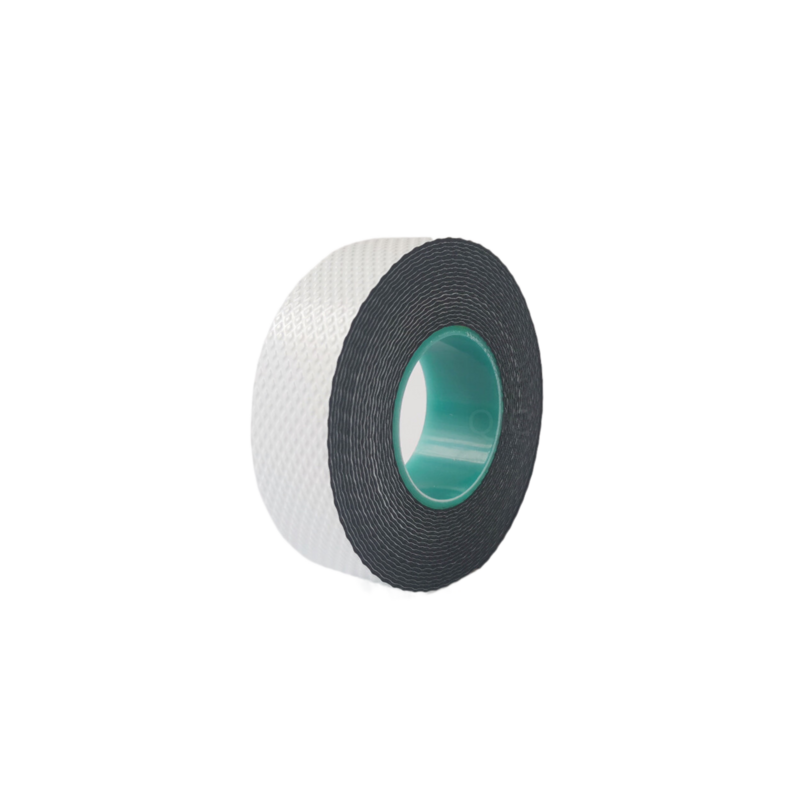
The Future Trajectory of Electrical Insulation and Conclusion
The landscape of electrical infrastructure is undergoing a profound transformation, driven by the integration of renewable energy sources, the burgeoning demand for smart grid technologies, and the continuous need for robust, reliable power distribution in an increasingly electrified world. As these trends accelerate, the role of advanced electrical insulation materials, particularly those like epr self amalgamating tape, becomes even more pivotal. The future trajectory of electrical insulation will be characterized by several key developments: an increased focus on sustainability and eco-friendly materials, enhanced performance requirements for higher voltage and extreme temperature applications, and the integration of smart functionalities for predictive maintenance. In terms of sustainability, there is a growing imperative to reduce the environmental footprint of industrial products. While EPR tape itself offers long service life, reducing waste from frequent repairs, future innovations may explore bio-based or recyclable polymers to further enhance environmental stewardship. The drive for higher voltage transmission and smarter grids necessitates insulation materials that can withstand greater electrical stress, offer superior thermal management, and potentially incorporate sensors for real-time monitoring of insulation integrity. Such advancements will enable predictive maintenance, reducing costly downtime and enhancing system efficiency. The increasing complexity of electrical systems, coupled with a growing emphasis on safety and reliability, reinforces the enduring importance of high-performance materials. EPR tape, with its unparalleled self-amalgamating property, high dielectric strength, and environmental resilience, is perfectly positioned to meet these evolving challenges. Its ability to create a seamless, void-free, and moisture-proof barrier ensures the longevity and safety of critical electrical connections in diverse and demanding environments, from subterranean cable splices to exposed overhead lines and industrial machinery. As the world continues its march towards greater electrification and automation, the foundational integrity of power systems will depend heavily on the quality and innovation of insulation materials. Our J30 High-voltage EPR Rubber Tape embodies this future-ready philosophy, offering a robust, reliable, and technically superior solution that supports the safe and efficient operation of modern electrical infrastructure. By continuously investing in R&D, adhering to the strictest quality standards, and providing unparalleled technical support, we remain committed to empowering engineers and B2B decision-makers with the tools they need to build and maintain the electrical backbone of tomorrow. The continued evolution of EPR technology, driven by material science advancements and application-specific demands, promises even more resilient and intelligent insulation solutions, ensuring that power remains uninterrupted and safely delivered across all sectors.
Authoritative Citations and Further Reading
- 1. IEEE Std 48-2019: IEEE Standard for Testing and Performance of Outdoor AC High-Voltage Cable Terminations. [Link to IEEE Standards]
- 2. ASTM D4388: Standard Specification for Nonmetallic Semi-Conducting and Insulating Tapes for Electrical Shielding, Jointing, and Terminating. [Link to ASTM Standards]
- 3. IEC 60454-3-1: Pressure-sensitive adhesive tapes for electrical purposes - Part 3: Specifications for individual materials - Sheet 1: PVC film tapes with pressure-sensitive adhesive. (Related standard for context on tape types). [Link to IEC Standards]
- 4. Power Engineering Journal: "Advances in High Voltage Insulation Materials" (Generic reference for industry trends). [Link to IEEE Xplore Journals - Example]
- 5. Insulating Materials Research Forum: Discussions on the properties and applications of EPR-based compounds for electrical insulation. [Link to International Electrical Insulation Conference (IEIC) Resources - Example]
-
Self Amalgamating Tape: Redefining Electrical Insulation and ProtectionNewsAug.07,2025
-
Seal Strip Solutions: Revolutionizing Energy Efficiency and Comfort in Modern BuildingsNewsAug.07,2025
-
High Voltage Electrical Tape: Powering Safety and Reliability in Modern InstallationsNewsAug.07,2025
-
Flex Tape Waterproof: Transforming the Future of Instant RepairsNewsAug.07,2025
-
Elevate Electrical Safety Standards with High-Performance PVC Electrical TapeNewsAug.07,2025
-
Butyl Rubber Tape: The Ultimate Solution for Reliable Sealing and WaterproofingNewsAug.07,2025
